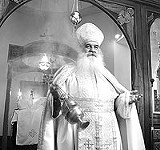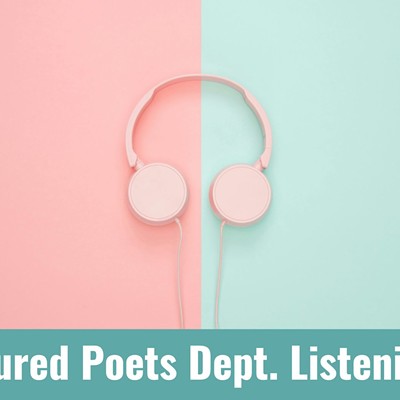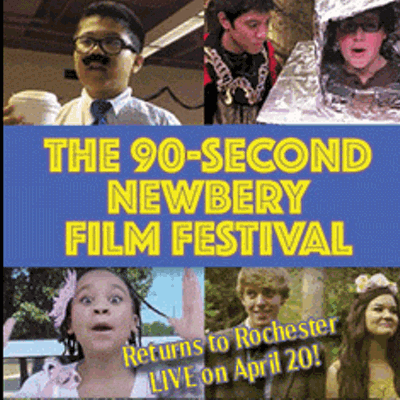[
{
"name": "500x250 Ad",
"insertPoint": "5",
"component": "15667920",
"parentWrapperClass": "",
"requiredCountToDisplay": "1"
}
]
Tony Bibawy always draws a little cross at the top of the page before he writes anything, even his phone number or an everyday note. It's an ancient custom of his ancient people and religion, "a practice we do a lot," he says.
Bibawy is a member of the Coptic Orthodox Church. Founded in Alexandria, Egypt, by St. Mark the Evangelist in the first century CE, this early Christian branch counts more than nine million members in Egypt and over 10 million worldwide.
Copts are descendants of the ancient Egyptians, and are now a Christian minority in Muslim Egypt. The written cross isn't the only outward expression of their faith: Most Copts wear a pendant of the intricate 12-cross Coptic crucifix, and many men tattoo the same ancient symbol on their arms.
Copts pride themselves in having carried on their founder's original teachings since 43 CE, without the schisms that characterize other branches of Christianity. The Coptic Church broke away from the rest of the early Christian world in the mid-5th century, but in retrospect, the dispute that caused the rift seems minor.
It centered on Jesus, and the theological hair-splitting argument as to whether Christ's divine and human natures were "united in one" (as the Copts asserted) or simply "united" (as the Roman Catholics contended). Western historians generally describe the Copts as "monophysite" (believing that Christ has a single nature, partly human and partly divine), though the Coptic Orthodox Church today emphasizes that it never adopted that approach.
In 1973, the Coptic Pope Shenouda III of Alexandria and Pope Paul VI of Rome issued a joint statement that Christ's "divinity is united with His humanity in a real, perfect union, without mingling, without commixation, without confusion, without alteration, without division, without separation."
A Coptic church isn't just a place of worship; it's the home of an extended family, where kids develop a strong allegiance to the community. St. Mark's Coptic Orthodox Church in Henrietta is small enough that everyone knows each other well, and all the adults look out for all the kids.
A medical fellow at Strong Memorial Hospital, Bibawy is a deacon at St. Mark's. He also leads the youth group.
Bibawy's parents left Gamal Abdel-Nasser's Egypt in the '60s, intimidated by job discrimination and frequent flare-ups between Copts and Muslims in the north. More than one million Egyptian Copts have fled the country over the last 40 years, citing frustration with government leaders who, they say, overlook anti-Copt prejudice in schools and workplaces, and fail to protect them from attacks by Islamist fundamentalists.
Nearly 300 Copts have made their way to Rochester --- "and not because of the weather," says Father Shenouda Maher, St. Mark's priest. They come because family members or jobs await them here. Most are immigrants from Egypt, but the congregation also includes several Sudanese and Eritrean Coptic families who fled religious intolerance, as well as a handful of American converts who married into the religion.
Here, Copts find themselves in a minority of a different sort. They are Christians in a majority-Christian country, but it is their orthodoxy that sets them apart from more liberal branches of Christianity. Like newcomers from any traditional society, Coptic parents must now battle the excesses and permissiveness of American culture to keep their kids in the fold. In Egypt, Bibawy says, Copts are exposed to a controlled palette of culture and ideas --- Coptic, Muslim, Egyptian.
"If a person of my age walks in the streets of Egypt with shorts," says 20-year-old RIT student Amir Riwes, who moved here with his family when he was 13, "they will attract many eyes."
When a Copt migrates to the US, Bibawy says, "all of a sudden, you run into a lot of things that have to be dealt with: openness, ideas, a million different cultures. Parents are trying to bring their kids up in the mind and faith of our church and keep them away from the difficulties around them."
That's where St. Mark's comes in, "like a big family, or a base, like belonging somewhere," says Riwes' sister Basant. "It feels like my house. I can ask for help or just hang out. It's a good environment."
There are about 70 Coptic families in the Rochester area who belong to St. Mark's, and about 100 families in the Western New York Coptic community encompassing Syracuse, Rochester, Medina, and Buffalo. That community is growing, but slowly, as more Copts immigrate to the area for work, or marry in from elsewhere and settle here.
Father Shenouda is a medical doctor by training. This was a concession to his mother, who wanted him to be as educated as his four professional brothers before attending seminary. Nowadays, most Coptic priests have secular degrees under their belts; even Pope Shenouda (no relation) worked as a journalist before entering the monastery. The Coptic Pope resides in Alexandria, the religion's traditional Egyptian home.
A renowned scholar of the Old Testament and Coptic language, Father Shenouda specialized in theology at the Coptic Orthodox Theological College in Cairo, where he still teaches. He received a PhD in Coptic language from Oxford University and was ordained in early 1998, "just when I was ready to retire," he says.
"Patriarch Shenouda literally breathed the Holy Spirit into me," Father Shenouda says. This is a tradition, believed to have originated with St. Mark, in which the patriarch actually breathes into the mouth of the ordained priest.
Six months later, Father Shenouda came to Rochester.
St. Mark's was nearly a decade old when Shenouda arrived, and it is now in the midst of an expansion. Initially a response to overcrowded Sunday school rooms --- "When the church was first built, there weren't a lot of kids," Bibawy says --- the addition will fill other needs, like a larger bookstore and library.
The church already serves as a central meeting-place for the local Copts, who don't occupy a particular neighborhood, but live all over the Rochester area. Most important, Bibawy says, the expansion will create a place for the kids, "so the church provides for all their needs, instead of the other places that aren't good for them."
At weekly youth-group meetings, Bibawy and a handful of teenagers wrestle with the central question of their dual life: How to be orthodox in a liberal society. The church does its part to help kids answer the most difficult questions, mostly of the classic sex 'n' drugs 'n' rock 'n' roll variety.
A designated youth bishop in Cairo publishes booklets in English and other Western languages aimed at Coptic teenagers growing up outside Egypt. "In the modern age," writes Cairo-based Bishop Moussa in Youth & Pure Living, "we hear and see the stream of permissivity sweeping the world, whether in interpersonal relationships or mass media. Even in Egypt we feel the aggravation of the problem sneaking out of the darkness to rear its head in the alleyways shamelessly."
At a recent parish youth conference, the main topic of discussion was How to Resist Dating, which is forbidden by the Coptic Church until a couple is serious about marriage. "Do not deceive yourselves by the culture around you," Bishop Moussa continues, "for it is a culture that has resulted in broken families, broken marriages, and many distraught children who have lost their parents through the malpractice of family life."
"America is accepting of many cultures," says Father Shenouda, "so it's not difficult to preserve our own culture. Anyone can be a good Christian here. It's not a problem of the culture; it's a problem of thinking you have to change."
But it's still a tricky business. "As a Christian, in school, it's hard to look at all the stuff that some kids do," says Basant Riwes, a junior at Greece-Athena High School. "Dating, for example, and the stuff they do in the hallway --- they should do it at home, not in front of us."
Basant and Amir came here in the mid-'90s, when their father (since deceased) was transferred from Italy to serve as priest at St. Mark's. Basant sees other Coptic kids giving in to the youth culture around them, but she and her older brothers have managed to hang tough.
"Some Coptic families even say it's OK for their kids to date. But in my family, it's better not to --- we're not ready. In my house, we have a strong upbringing," she says. "But other kids are succumbing, and are trying to be like the people here --- dress, make-up, appearance." (When choosing her clothes, Basant considers the values of self-respect and modesty. She wears many of the same things her non-Coptic friends wear, minus the saucy bits --- no crop-tops, no form-fitting jeans.)
Basant wants to study pharmacy after high school, a path that will take her away from home, but not too far --- probably either to Buffalo or Albany. She won't live in a dorm. "I don't feel comfortable in that environment --- parties and stuff," she says, "and anyway, the rooms are too small. I like my privacy." Instead, she'll try to rent a place with a fellow Copt and hook up with the local Coptic community.
It's her family's resolute commitment to the church that keeps Basant from straying. "I've lived all my life in the church," she says. "It's part of my life: I have to go to church and keep our tradition."
That much she's sure of. But life in a culturally diverse society has changed some of her attitudes. "At first, I thought I'd only marry Egyptian," she says. And, in fact, Youth Bishop Moussa preaches marrying within one's own culture. "Cultural differences may result in problems," he writes. "It is better to choose your partner from amongst your society, so that there will be similar mentality and culture, and a better opportunity of getting to know each other."
"But we're all humans," Basant says. When she finally chooses a partner, she says, "the main thing is to be a Christian."
Egyptian President Hosni Mubarak surprised the Coptic community late last year by declaring the Coptic Christmas, January 7, a national holiday. The move was historic, the first time an Egyptian leader officially recognized the day. But Tony Bibawy calls the effort "just another miracle," a tiny gesture that "shifts the gears" of Egyptian politics only for a moment.
"For a Christian community that large to last so long in the Middle East is a miracle," he says. "God preserves His Church, even in times of adversity, even when heads of governments are against us."
If you're a Copt, God's not only your higher power, he's a player down here, as well. And Egyptian politics is all about miracles. At least, that's how the Coptic minority explains its precarious survival in the now heavily Muslim country.
When the Copts' continued existence seems insecure, Bibawy says, that's when God steps in. Egyptian Coptic history is full of accounts that help the faithful hang on, tales of less-than-hospitable government leaders whose hearts and minds were changed in the Copts' favor after the politicians witnessed a miracle.
There's the time in the 10th century when the Copts moved a mountain through prayer and fasting. In the 1960s, President Nasser allegedly saw a vision of Mary at a Coptic church, and was cured of terrible headaches by the Coptic Pope. And in 1981, nearly a month to the day after President Anwar Sadat locked up the Coptic Pope in a Cairo monastery, Sadat was murdered by Islamist fundamentalists. Most explain the assassination as a reaction to Sadat's peace treaty with Israel. The Copts would tell you otherwise.
"Copt" is the English word for the Arabic qibt, the name bestowed on the indigenous Egyptians by Muslim conquerors in the 7th century CE. Egypt then began a long metamorphosis in culture and language, gradually becoming majority-Muslim and Arabic-speaking. Over the centuries and to this day, Muslim-Coptic relations have been erratic and sometimes bloody.
Today, "Copt" refers to the Christian minority of Egypt, while the Muslim majority calls itself "Arab." Census data are spotty for the Coptic minority, but they make up somewhere between six and 10 percent of Egypt's 55 million people. Copts and Muslims alike share Egyptian ethnicity and Arabic language; the difference between them is religious.
Growing up, Tony Bibawy's parents had no thought of leaving Egypt. But they changed their minds in 1969, when Egypt's economy looked dire and religious persecution seemed to be on the rise. That's when many Copts started seeking better opportunities outside the country, and emigration continues to this day.
Bibawy's father, a medical doctor, at first sought out American Coptic communities where he could find work, eventually landing a job in Bath, near Corning, at the Veterans Administration Hospital. Although the Coptic community was non-existent in the area, Bibawy's father felt certain that he could raise his kids in the church's tradition.
As the sole Coptic family in the Corning area, the Bibawys had to travel as far as Rochester to find fellow Copts, and would even make a monthly trip to Dr. Bibawy's old church in New Jersey. On Sundays between road trips, the family made its own church at home, listening to the liturgy on tape, and discussing aspects of the religion. Tony credits his parents for his own piety and loyalty to the church. "We were brought up to be very proud of who we were and of our church," he says. "We always spoke about it. We weren't considered to be any different from anyone else."
Mass at St. Mark's lasts half a day. Dancing and drinking (except for Communion wine) are prohibited at all church-related social events, but the service is extraordinarily sensuous.
There's the sanctuary's thick carpet under your stocking-feet (everyone removes their shoes) and huge crystal chandeliers overhead. Stained-glass windows line both sides of the white-washed room, and icons --- those shiny, Byzantine-style oil portraits of saints staring with huge eyes --- cover the wall at the front of the room. The service is spoken and chanted in a mixture of ancient Coptic, modern Arabic, and English, and many chants are accompanied by a Middle Eastern rhythm on finger-cymbals.
Most noticeable is the fog of incense that billows from a small censer hanging over the front of the altar. It's so thick that your eyes will be red when you leave. The scent is exotic enough to trigger repressed memories of a past life in the ancient world, even for the most modern Westerner.
But it's the symbolism that really sings: The censer represents Mary's womb; the burning coal is Jesus; and the incense is prayer, going up to heaven.
Men and women sit on separate sides of the sanctuary and take Communion in separate rooms off the back altar, out of sight of the rest of the congregation. Father Shenouda sprinkles Holy Water over the congregation, and breaks and distributes loaves of special bread, baked by male congregants and stamped with the 12-cross Coptic Crucifix.
After Mass, everyone meets over sandwiches and coffee in the basement. Conversation, in Arabic and English, is loud and lively. The kids scarf Skittles and Snickers bars, and horse around before being corralled in a couple of Sunday-school classrooms.
Sometimes you can pick up a baggie of Egyptian spice, the church's version of a bake-sale item, a fundraiser for the expansion project. Concocted by a group of churchwomen, the mixture is toasty brown, some kind of roasted oregano with sesame seeds and salt.
The spice has the same effect as the incense, recalling the centuries of tradition --- vulnerable but enduring --- that Rochester Copts hope to sustain here.
More by Cindy Mindell-Wong
-

Go learn your lesson
Aug 14, 2002 -
Who will lead them?
Jun 12, 2002 -
Will they come?
May 15, 2002 - More »



